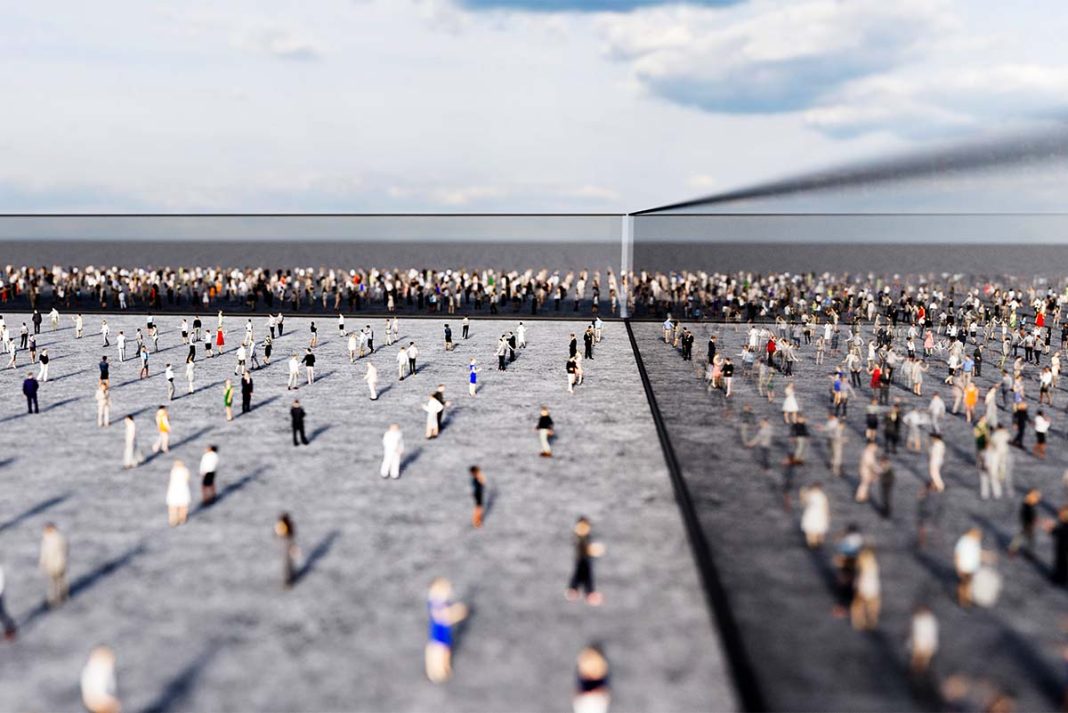Vučić’s calls for “unity” actually represent a call for his supporters to unify. Serbia is a deeply divided society – and two massacres (in a Belgrade primary school and settlements around Mladenovac) provided the spark for accumulated hatreds to ignite. And politics has again spilled over onto the streets
Speaking at the recent SNS rally in Belgrade, Aleksandar Vučić announced that he is finally (after many fake announcements) stepping down from the position of president of Serbia’s largest political party. He will thereby finally be in compliance with famous Article 115 of the Constitution of Serbia, which states, with no ambiguity whatsoever, that “the President of the Republic may not perform any other public function or professional activity”. Vučić’s predecessor, Tomislav Nikolić, showed respect for the Constitution by standing down as SNS president soon after assuming the position of President of the Republic. And he promptly lost all the power that the ambitious Vučić seized as the party’s new leader.
Vučić now doesn’t have such an ambitious party member, so at the party’s Assembly in Kragujevac he installed loyal party member and current defence minister Miloš Vučević as SNS president.
Although relinquishing the presidency of a party, as a source of legitimacy, is always a risky move, even when the leader has unquestionable authority, Vučić is far from “depoliticised” in the way Nikolić was. He will, of course, control SNS absolutely for the foreseeable future, and as President of the Republic he will also be the informal “nation’s leader” as head of the “people’s movement”, the formation of which he announced for 28th June – marking the major Serbian holiday of Vidovdan, which is linked symbolically to the Battle of Kosovo, the famous 1389 clash between Serbs and Turks, the 1989 anniversary of which was utilised by Milošević with his speech at Gazimestan – the memorial site marking the spot where this legendary battle, representing a central point in the Serbian identity, took place. Proving that history can be cynical is the fact that it was also on Vidovdan that Milošević was extradited to the Hague Tribunal.
When he fears those dominated by the ghosts of 5th October, Vučić remains silent about the fact that he could not have achieved economic success without the heritage of 5th October, nor would he have had the stability of the regime if it had not been for the lucrative exodus of 5th October participants to his shirttails
The aesthetics and messages of the pro- Vučić (counter) rally in Belgrade were reminiscent of the Milošević era. As Vučić’s rule has unfolded, his somewhat surprising piety towards Milošević has become ever more visible, while in his frequent addresses he has almost never emphasised his real political mentor, Vojvislav Šešelj. Again, on the other hand, even though Vućić has also attempted to mutely rationalise his radical past, the political and media atmosphere and practice in Serbia have long since “re-Šešelj-ised”, as has SNS itself. Is it purely coincidental that the SNS Assembly was held in Kragujevac – the city where the Serbian Radical Party was founded in 1991 through the unifying of the political organisations of Šešelj and Nikolić?
Vučić’s calls for “unity” actually represent a call for his supporters to unify. Serbia is a deeply divided society – and two massacres (in a Belgrade primary school and settlements around Mladenovac) provided the spark for accumulated hatreds to ignite. And politics has again spilled out onto the streets.
It is increasingly evident that Vučić is obsessed and frustrated with the regime change of 5th October 2000. Milošević’s mistakes mustn’t be repeated. That first and foremost means avoiding an irrational conflict with the West. Vučić is still holding his own on this front, the West is still relatively receptive, mistakes have long been made in the media sphere. It is very important to Vučić that they are not in the Praetorian prefecture, as was the case with Milošević. When he fears those dominated by the ghosts of 5th October, Vučić remains silent about the fact that he could not have achieved economic success without the heritage of 5th October, nor would he have had the stability of the regime if it had not been for the lucrative exodus of 5th October participants to his shirttails. It would have been even tougher for him if he’d had to deal with the extraditions of Mladić and Karadžić to The Hague, from which he was saved by Milošević’s successors.
Vučić tied his political destiny to the regime’s might not to permit the opposition to make essential concessions towards full democratic elections. If this changes, it will be a sensation.
